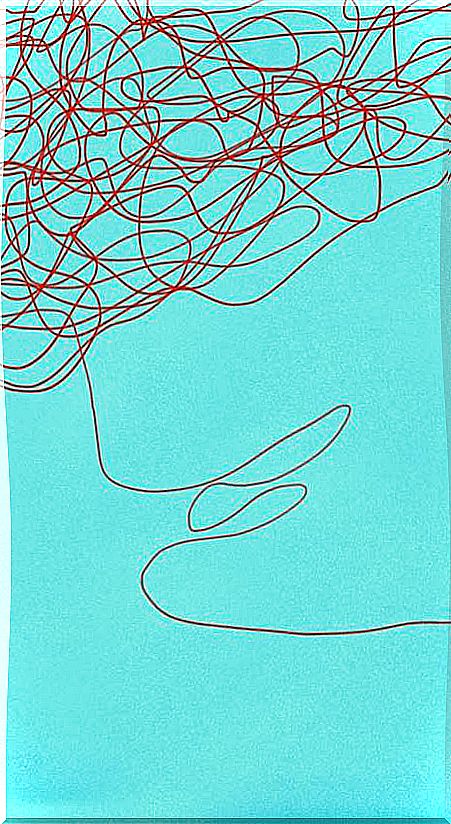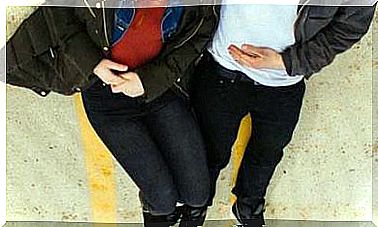Be Clear With What We Say
Max tells us the best antidote to misunderstandings: use the right words, be absolutely sincere and leave no gaps

It was three long months since Max had gone to live in England and, in his absence, Marta and Alberto had not had the opportunity to see Clara face to face. So they decided to go visit her in town. They met for dinner at José’s bar, the usual setting for his encounters with Max. They arrived promptly at the bar, where Clara was already waiting for them and José had their usual table prepared for them.
The three friends chatted animatedly throughout dinner. They talked about their lives, their projects, and also took the opportunity to recall the challenge that Max had thrown at them before leaving and that he kept alive based on enigmas. They wondered who would be the recipient of the next one and when it would arrive.
They were already having coffee when Alberto’s mobile rang: he had received a message. While he was reaching for it in his jacket pocket, Marta’s also made the sound of message entry. And the same happened with Clara’s, practically simultaneously. All three received the same message. It was from Max, and it said:
“The water that is born cloudy in the source reaches the lake cloudy”
Max was giving them the riddle, and he had caught them together. Was it pure chance? It had to be that way, no doubt, but Max seemed to have a sixth sense for when and how to do things.
Max’s enigma opened a lively dialogue between the three, which was raised in tone by passion, and to which José listened from the bar. They were determined to solve it that night, because what was clear is that, if everyone had received the message simultaneously, it is that Max believed that this communication skill should be worked together.
It did not take long for them to intuit the meaning of the enigma, but there was a heated debate about where they were failing and why. Marta had been the first to intervene:
– In my case, I think that what clouds my message is that I am not able to say things with few words. I roll up, I repeat myself; It’s like I’m never sure that others have understood me correctly, like … Well, exactly how I’m doing now.
Clara, after confirming what she said, intervened to come to his rescue:
– To me, on the other hand, what happens to me is that I do not say everything. I leave gaps, holes that people fill with speculation or even inventions. This creates a lot of confusion.
“And what do you think of me?” Alberto asked.
“You … never get wet,” Marta said. Right now you just proved it. You hide your thoughts and often, since we don’t know what you think, misunderstandings are generated …
They spent a long time identifying how each of them generated “cloudy water” in their communication and seeing how this, how could it be otherwise, also reached its destination cloudy. Suddenly a common theme emerged that centered the discussion:
–And the things that we think but don’t say are also “cloudy water”? Is it good or bad to keep quiet about the things one thinks?
Marta took the floor to remember what Max had said to them on so many occasions:
–You know that it is different to be silent because you do not hurt the other than to be silent because of fear, or to be silent because you do not want to tell the truth. The limit will be if what we have to say can be received by the other in a constructive way, without feeling hurt; In other words, the limit is to see if our words will help you or not.
Alberto showed a doubtful expression; instead, Clara pointed to Marta’s thesis:
-Certainly. What virtue is there in hurting or wanting to be “too clear” at the expense of the other? There are people who are too clear simply to download, to “let go of what is inside”, not because they think that their clarity is going to help the other.
The debate lasted a long time. And until they saw José lifting the chairs from the adjacent tables, they did not notice the time. Alberto, on behalf of the three, promptly wrote a message to Max:
“Dear Max, the ability to communicate effectively and build strong relationships is being clear with what we say. Being clear means not using more words – or less – than necessary and not leaving gaps in our story. But we also think that being too clear can, at times, give us some displeasure. We look forward to your point of view on this matter ”.
The next day, Max sent the three friends his confirmation message:
“Indeed, clarity is an essential communication skill.
When we use too many words to explain something, deep down what we do is distrust that the other understands it.
When we keep quiet about what we think, we give rise to imagination, almost always to our own detriment.
When we hide our true thoughts, we leave it to others to interpret our intentions, and the result is always a misunderstanding.
I encourage you to be clear in communication. The more you say, the less chance there is that misinformation will prompt the other to ‘fill in the holes’.
And as to whether or not we should keep quiet about some things so as not to hurt others, let me give the answer to you by a famous novelist, André Maurois:
“Being sincere does not consist in saying everything we think, but in never saying the opposite of what we think.”
José, the owner of the bar, also received a message from Max. It said: “Thank you, José, for letting me know that I had my friends reunited. Your notice was very useful to me “









